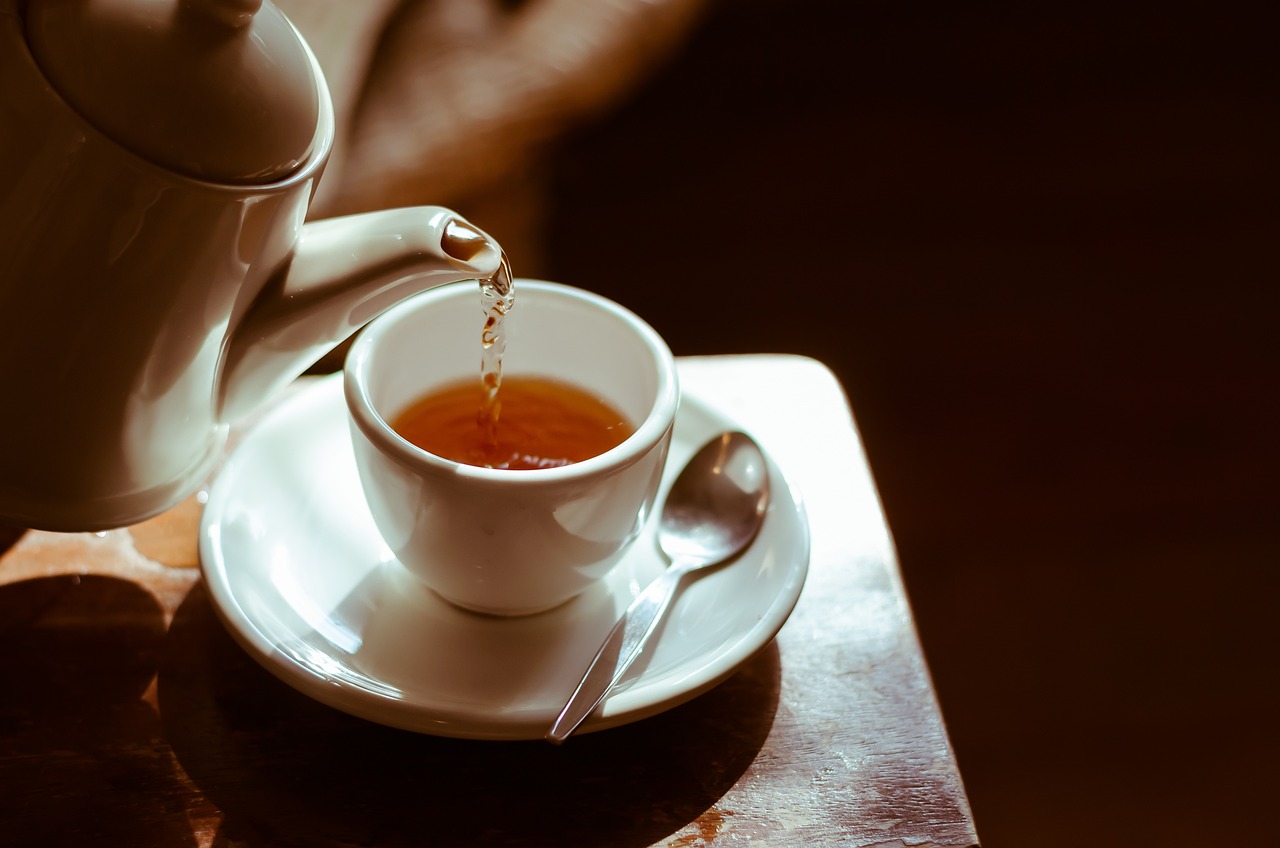
Tea enthusiasts often face a dilemma: they love the flavor and ritual of tea but want to reduce or eliminate caffeine from their cups. The good news? Decaffeinated and caffeine-free teas make it possible to enjoy your favorite beverage without the buzz.
Decaf or caffeine-free — what's the real difference? And how is tea decaffeinated? The answer lies in fascinating processes designed to remove caffeine while keeping the tea's flavor and health benefits intact. Join Nelson’s Tea as we unpick the process behind these teas, sampling the methods and makers to help you understand the process.
What is Decaffeinated Tea?
Traditional loose teas start as a naturally caffeinated product. Black, oolong, white, and green tea are made from the leaves of the Camellia sinensis plant. These leaves contain natural caffeine molecules as part of the plant's defense system.
In nature, caffeine helps protect the tea plant from pests and herbivores. Its bitter taste and toxic effects on certain insects discourage them from eating the leaves. Additionally, caffeine can inhibit the growth of competing plants nearby, allowing the tea plant to thrive. So, while you may enjoy caffeine for its stimulating effects, in the wild, it's the tea plant's natural way of staying safe and ensuring survival.
Decaffeinated tea undergoes a process to remove the caffeine, leaving only trace amounts, usually around 2 mg per cup. Decaf teas are distinct from caffeine-free options, which are naturally free of caffeine, like herbal blends such as chamomile or peppermint.

4 Process of Making Decaf Tea
Tea decaffeination involves specific methods of extracting caffeine. We will now break down four methods that remove as much caffeine as possible.
-
Methylene Chloride: This type of processing involves soaking tea leaves in methylene chloride. This chemical bonds with caffeine molecules and removes the caffeine while keeping the tea’s natural oils and flavors intact.
-
Ethyl Acetate: Ethyl acetate is often called "natural decaffeination" because it’s a naturally occurring chemical in tea and fruit. During this process, caffeine bonds with ethyl acetate and is removed. Many companies remove the caffeine bond using this method, as it balances flavor retention and customer preference.
-
Carbon Dioxide: The carbon dioxide method is a favorite for decaffeinating premium loose leaf teas and tea sachets. It involves pressure cooking the tea leaves with naturally occurring gas at high temperatures and pressures. When carbon dioxide reaches its supercritical state, it acts as a solvent that selectively removes caffeine molecules. The flavor molecules remain intact, making this method ideal for retaining taste and health benefits.
-
Water Processing: Water processing is commonly used for decaffeinating coffee beans but is less popular for tea. Tea leaves are soaked in hot water, which removes caffeine and flavor compounds. The caffeine is filtered out, and the water is reintroduced to the tea leaves.
Each decaffeination method has its strengths and weaknesses, impacting the tea's flavor, quality, and health benefits.
Sip, Relax, and Savor Decaf Tea
Decaf teas let you indulge in the flavors and benefits of tea without any unwanted side effects. At Nelson's Tea, our shelves are stocked with a fabulous array of premium loose leaf teas, from caffeine-free tea samplers to naturally decaffeinated varieties that cater to every palate. Who says decaf can't be decadent? Indulge in our rich, full-bodied tea blends and experience the art of subtle nuances.
Frequently Asked Questions
1. What is the Difference Between Decaffeinated Teas & Caffeine-Free Teas?
"Decaffeinated tea" and "caffeine-free tea" are often used interchangeably, but they mean different things. Decaffeinated tea is made from traditional tea leaves. As mentioned above, certain methods are used to decaffeinate tea leaves so that most of their caffeine is removed. Caffeine-free loose leaf teas are naturally free of caffeine from the start. For example, a tea sampler might include herbal blends like rooibos, chamomile, and peppermint, which never contained caffeine.
2.What Types of Decaffeinated and Caffeine-Free Teas are Available?
There’s a wide variety of decaffeinated and caffeine-free options to explore at Nelson's Tea.
- Decaffeinated Teas: These include decaffeinated green tea, decaf black tea, and even some white teas. Loose leaf teas are often decaffeinated using the carbon dioxide method to preserve flavor.
- Caffeine-Free Teas: Herbal teas like chamomile, rooibos, and peppermint are naturally caffeine-free. They’re perfect for late-night relaxation or for those who avoid caffeine entirely.
Nelson’s Tea offers a variety of choices, from robust decaf black teas to soothing herbal options, ensuring something for every tea lover. With so many possibilities, you can enjoy a flavorful cup any time of day without worrying about caffeine.
3. What Factors Affect Decaffeination?
Several factors determine the effectiveness of a decaffeination process and the quality of the resulting tea.
- Type of Tea: Different teas have varying caffeine levels. Black teas generally contain more caffeine than green teas, and white teas often have the least. The type of tea impacts how well it retains its flavor after the decaffeination process.
- Decaffeination Method: Each decaffeination method has unique effects on tea flavor and quality. The carbon dioxide method is often considered the best for preserving flavor molecules, while water processing may lead to a weaker taste.
- Temperature and Time: High temperatures and extended processing times can impact the tea’s flavor and health benefits. Methods like the carbon dioxide method use controlled temperatures to ensure the flavor remains intact.
- Leaf Size: Loose leaf teas tend to retain flavor better than smaller tea leaves or tea bags during decaffeination. Premium loose leaf tea, for example, undergoes less processing than tea in smaller bags, allowing for better preservation of its natural qualities.
Understanding these factors can help you make an informed decision when selecting your next decaffeinated tea. By choosing high-quality options like premium loose leaf tea, you can enjoy a flavorful and satisfying experience without the caffeine.
These statements have not been evaluated by the Food and Drug Administration. This product is not intended to diagnose, treat, cure, or prevent any disease.

